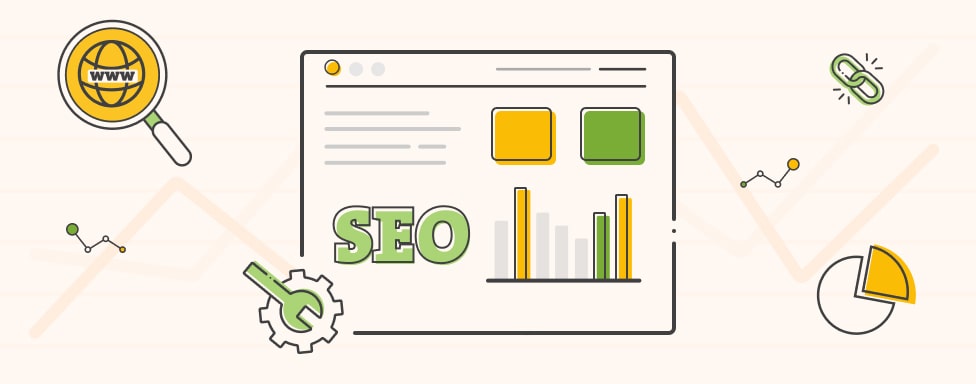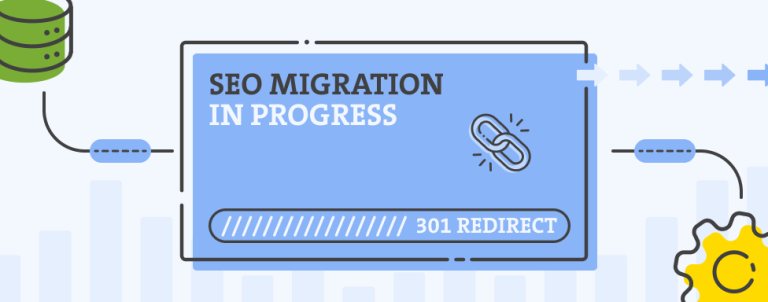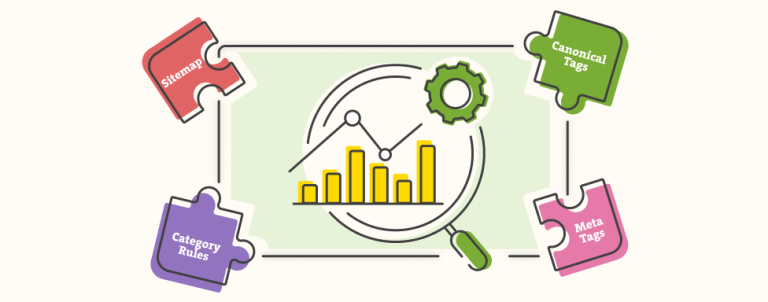On-page SEO refers to optimizing various elements within your website that affect your search engine rankings. The goal of on-page SEO is to make your website more attractive to search engines, which can lead to higher rankings and more traffic. These elements include your website’s content, meta tags, internal links, URL structure, and more.
Here, you’ll learn the key components of on-page SEO to which you need to pay attention. Let’s get right into the importance of each element and how it contributes to your site’s overall SEO performance.
Understanding the Elements of On-Page SEO
The first step in on-page SEO is understanding the various elements that can be optimized on your website. This includes everything from your content’s quality and relevance to optimizing your images and videos. Each element uniquely influences how search engines perceive your site and determines its rank in the SERPs. What are those elements, and what are they for? Let’s find out.
1. Meta Tags and Their Importance
Meta tags are text snippets describing a page’s content to search engines and web visitors. The most critical meta tags for on-page SEO are the title tag and meta description. These tags can influence click-through rates from the search results and are an opportunity to use your targeted keywords effectively.
2. Internal Linking Strategies
Internal linking is the practice of linking to other pages on your website within your content. It helps search engines understand your site’s structure and your pages’ relevance to certain topics. Proper internal linking can spread page authority throughout your site and improve the user experience by providing additional, relevant information.
3. Keyword Research and Optimization
Keyword research is a crucial aspect of on-page SEO. It involves identifying relevant keywords and phrases your target audience is searching for and incorporating them into your website’s content. This can help improve your website’s ranking for those keywords and attract more organic traffic. Choosing relevant keywords and having a high search volume and low competition is essential.
4. High-Quality, Valuable Content
Content is king, and this holds for on-page SEO as well. Your website’s content should be high-quality, relevant, and provide value to your audience. This helps with your website’s search engine rankings and improves user experience and engagement. Having valuable content can also attract backlinks, which are crucial for SEO.
5. Image Optimization
Images can enhance the user experience on your site, but if not properly optimized, they can also slow down page load times. Use descriptive, keyword-rich file names and alt tags for images. Compress images to reduce file size without sacrificing quality, and consider using lazy loading techniques to improve page speed.
6. Mobile Optimization
With the increasing prevalence of mobile browsing, having a mobile-friendly website is crucial. Ensure that your site is responsive, meaning it adjusts seamlessly to different screen sizes. Google’s mobile-first indexing also means that your mobile site’s performance can directly affect your search engine rankings.
7. Schema Markup
Schema markup is a type of microdata that helps search engines understand the context of your content. Implementing schema for products, reviews, and other eCommerce elements can enhance your listings in the search results with rich snippets, improving click-through rates.
8. Optimizing URL Structure for Search Engines
URLs should be concise, include relevant keywords, and be intuitive to users and search engines. A well-optimized URL structure can help search engines understand your pages better and can improve your site’s visibility in the search results.
Importance of On-Page SEO in eCommerce
On-page SEO is critical for eCommerce businesses as it can directly impact your website’s visibility, traffic, and sales. Here are some reasons why on-page SEO is essential for eCommerce success.
1. Better Ranking in Search Engines
The most obvious benefit of on-page SEO is that it can help improve your website’s ranking in search engines. When your website is optimized for relevant keywords and follows best practices, it can rank higher in search engine results pages (SERPs). This, in turn, can lead to more organic traffic and potential customers.
2. Increased Organic Traffic
As mentioned earlier, on-page SEO can help improve your website’s visibility in search engines. When your website ranks higher in search results, it’s more likely to attract clicks and visits from potential customers. This organic traffic is essential for eCommerce businesses as it can lead to more conversions and sales without needing paid advertising.
3. Better User Experience
On-page SEO is not just about optimizing for search engines; it’s also about creating a positive user experience. When your website is well-organized, easy to navigate, and provides valuable content, it can lead to better user engagement and satisfaction. This, in turn, can lead to improved search engine rankings, as search engines also consider user experience when ranking websites.
4. Competitive Advantage
In today’s competitive eCommerce landscape, on-page SEO can give you a significant advantage over your competitors. By optimizing your website for relevant keywords and providing valuable content, you can outrank your competitors in search engines and attract more customers. Having a well-optimized website can help you stand out from the competition and establish your brand as an authority in your industry.
5. Impact on Conversion Rates
Effective on-page SEO drives traffic and significantly impacts conversion rates. By targeting keywords with high purchase intent and creating optimized landing pages, you can increase the likelihood of visitors taking the desired action, such as purchasing or signing up for a newsletter.
6. Enhanced Brand Credibility
A well-optimized eCommerce site conveys professionalism and credibility. When your site appears at the top of search engine results, it sends a message to potential customers that your brand is a leading player in the industry. This enhanced credibility can increase trust and a higher likelihood of repeat customers.
7. Long-Term Sustainability
On-page SEO is a long-term investment in your eCommerce business. Unlike paid advertising, the effects of a well-implemented on-page SEO strategy can provide sustainable traffic and sales over time. By continuously optimizing your site, you can ensure your business remains visible and competitive in the ever-changing online marketplace.
Unlock eCommerce Success With On-Page SEO
On-page SEO works by aligning your website’s content and structure with the algorithms used by search engines to rank pages. With each element optimized for search engines, you pave the way for greater visibility, traffic, and, ultimately, sales. Take action today to refine your on-page SEO strategy and witness the transformative impact it can have in the future. If you need help, reach out, and let’s optimize, captivate, and thrive together in the digital realm.



